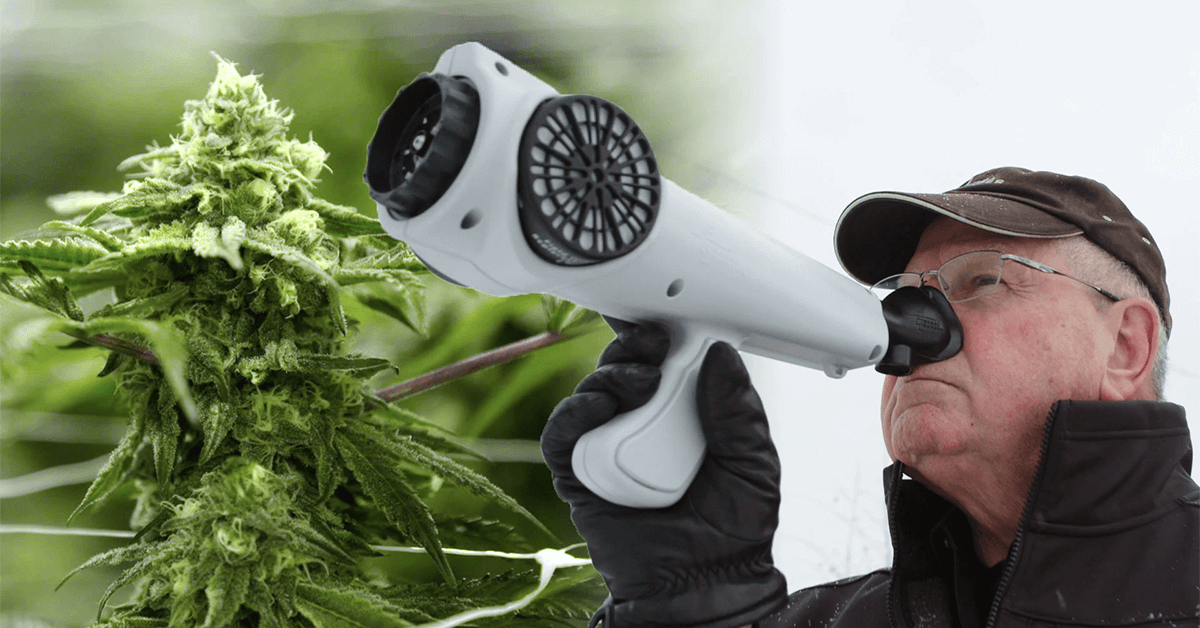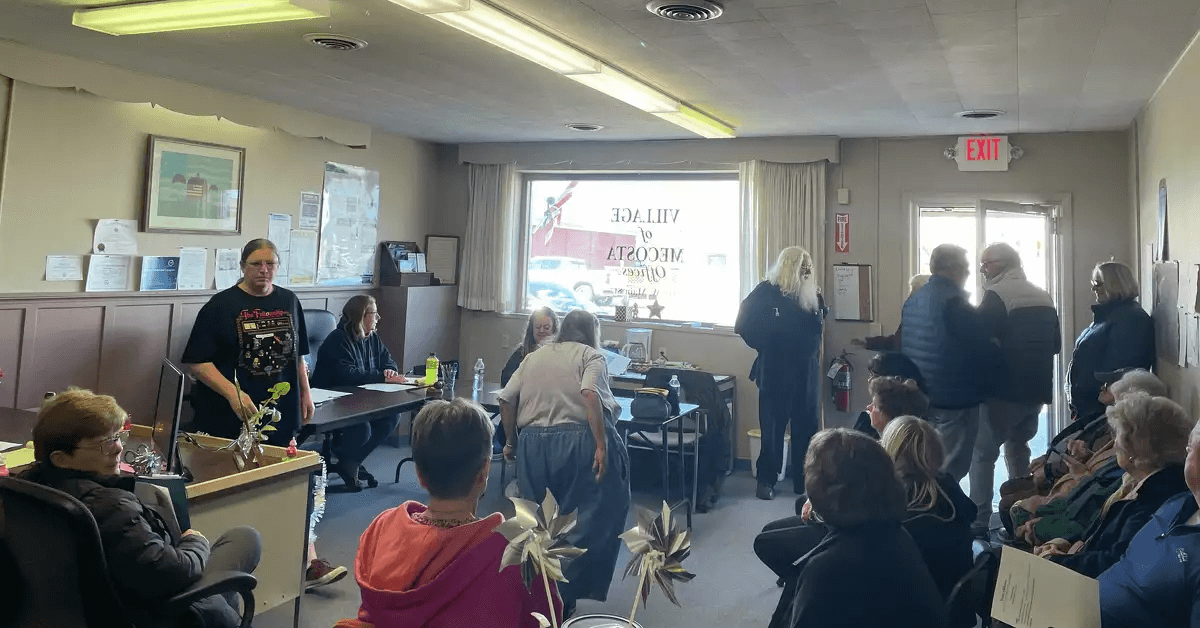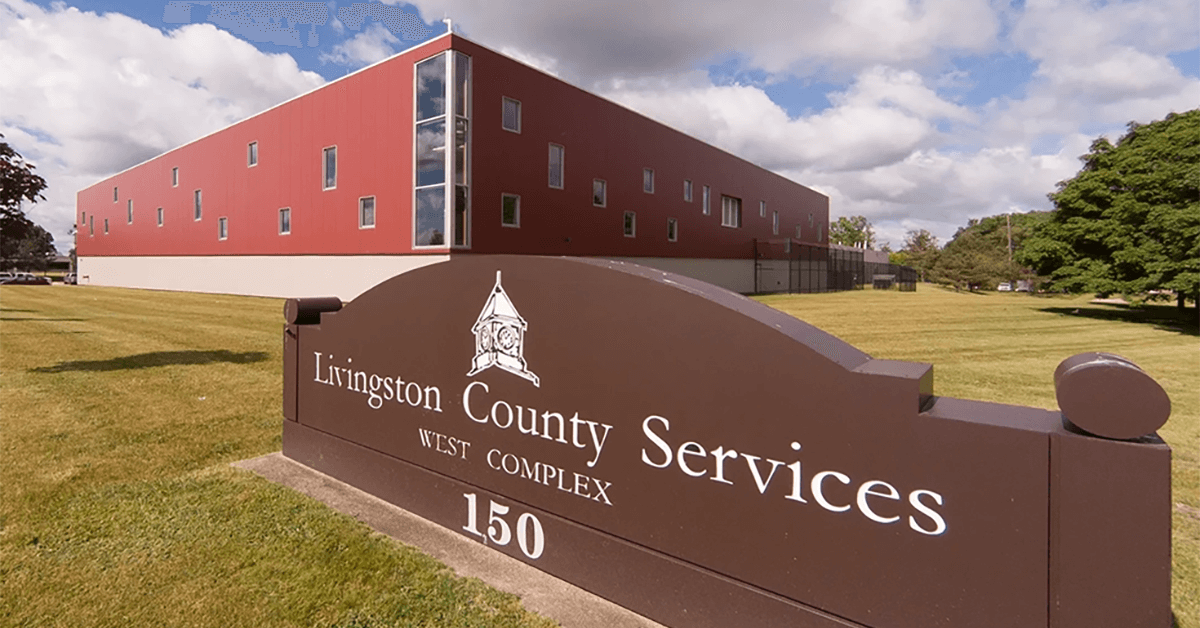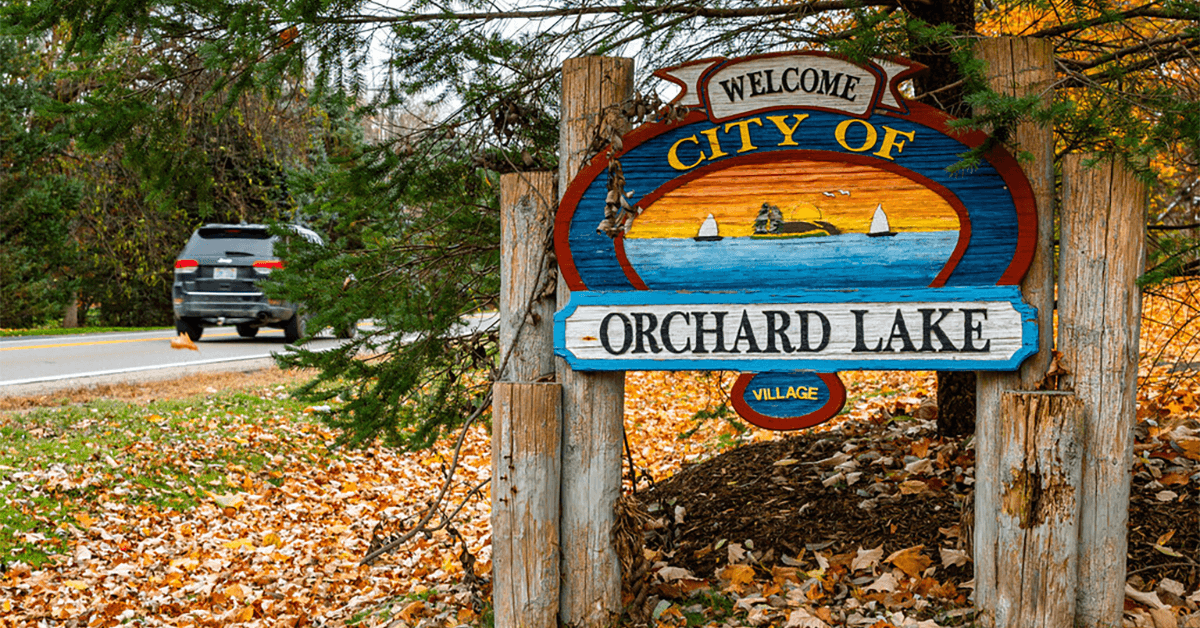Lapeer City Explores Changes to Cannabis Business Ordinances Amid Odor Concerns

Lapeer's city management, under the guidance of City Manager Mike Womack, is actively addressing community concerns regarding the odors emanating from cannabis cultivation facilities. Concurrently, there is an ongoing effort to amend the local ordinances that govern cannabis enterprises within the area.
In an attempt to thoroughly assess and potentially revise the regulations and policies surrounding the placement and operation of cannabis businesses, the Lapeer City Commission implemented a six-month pause on accepting new cannabis business applications in January. This moratorium comes despite the city having already issued licenses to seven adult-use cannabis retail outlets, without imposing a cap on the number of cultivation and processing facilities.
The recommendation to reassess how cannabis businesses are regulated came from the Lapeer Planning Commission. They advised that the City Commission consider requiring all cannabis-related businesses to obtain a special land use permit. This permit system would provide the city with a mechanism to revoke licenses in the event of regulatory non-compliance, offering a direct method for enforcement.
Addressing the odor complaints, Womack expressed that mitigating such issues, whether cannabis-related or otherwise, presents a significant challenge. He highlighted his approach of seeking voluntary cooperation from businesses alleged to be the source of odors, rather than immediately resorting to enforcement measures. This approach has led to several constructive discussions with the involved cannabis businesses.
Womack shared his belief that the businesses are not intentionally causing odor issues or seeking negative attention from these emissions. However, despite their efforts, the problem persists. He appealed for public patience and trust as the city works to address this complex issue in a fair and considered manner.
The review of the moratorium and ordinance adjustments is an ongoing process. Womack is collaborating with city staff, the city attorney, the City Commission, and even the businesses themselves to identify and implement solutions that balance the interests of all parties. The final decision on any changes to the city's cannabis regulations will rest with the City Commission, following Womack's proposal based on comprehensive discussions and analyses.
Investor Drama Jeopardizes 10-Acre Cannabis Cultivation Venture in Michigan

In a significant legal battle unfolding in Michigan, entrepreneur Dan Reinhold has initiated a $5 million lawsuit against his former business partner, Marc Steimer. The lawsuit accuses Steimer of derailing a promising cannabis cultivation venture in Chelsea, near Ann Arbor, by diverting critical investment to a competing operation in Denver, Colorado.
Filed in a Michigan federal court, the legal dispute centers around Reinhold's plans to acquire and develop a 10-acre cannabis grow facility. Reinhold, new to the cannabis industry, had enlisted the expertise of Steimer and his consultancy firm, The High Consultants LLC (THC), to navigate the burgeoning market. In the early stages, their partnership sought to capitalize on the legalization of recreational cannabis use in Michigan, which began in January 2019. Despite exploring several potential grow sites throughout the year, it wasn't until 2022 that the pair decided to jointly pursue a cultivation operation in Chelsea.
The Chelsea property in question featured a 4,100-square-foot building designed for cannabis cultivation, equipped with three licenses allowing the growth of up to 1,000 plants for both medical and recreational use. Additionally, the facility had the capacity for a 6,000-square-foot expansion. Reinhold managed to secure interest from investors Brian and Steven Doyle, who were prepared to invest $1 million in the project, even negotiating the purchase price of the property down from $900,000 to $700,000.
However, complications arose when Steimer expressed a desire to introduce the Doyles to an investment opportunity in Colorado, involving a $1.5 million stake in a Denver dispensary, OG Medicinals. Despite Reinhold's requests to delay any discussion of the Colorado project until after the completion of the Chelsea deal, Steimer went behind Reinhold's back, convincing the Doyles to withdraw their investment from the Chelsea project and redirect it towards the Denver operation.
The lawsuit alleges that Steimer's actions were not only fraudulent but also oppressively detrimental to Reinhold's business interests. As a direct result of Steimer's interference, Reinhold claims his venture has incurred substantial financial damages, estimated between $2.5 million and $5 million in lost profits. These figures are supported by an expert in the Michigan cannabis industry, who will testify regarding the financial impact on Reinhold's venture.
This case underscores the volatile nature of the cannabis industry, where partnerships can quickly turn into rivalries, and investment opportunities are fiercely contested. As the legal proceedings unfold, the outcome will likely resonate through the Michigan cannabis business community, highlighting the importance of trust and transparency in collaborative ventures.
Mecosta Village Debates Introduction of Cannabis Dispensary

In a well-attended gathering at the Mecosta Village Office, community members voiced their opinions on a proposed cannabis ordinance that could pave the way for the opening of a dispensary within the village. Despite the large turnout nearly causing a postponement, attendees insisted on proceeding with the discussion.
Joyce Eichenberg started the conversation with a personal testimony, praising the benefits of THC gummies for her chemotherapy-induced neuropathy. "Medication doesn't work," she stated, highlighting the therapeutic value of cannabis.
However, Deb Beemer raised concerns about the olfactory impact of cannabis cultivation, worrying about the potential discomfort for residents and the implications for children in the area.
Tamara Gillis clarified that the discussion was centered around a retail outlet, not a cultivation facility. She emphasized the importance of thorough preparation and ordinance refinement before any formal adoption.
Jerry Wallace referenced the nearby community of Morley, which had recently overturned its ban on cannabis businesses, citing economic necessity as a driving factor.
Mary Ann Lenon expressed reservations about introducing a dispensary to Mecosta, fearing it might alter the character of the historic, community-focused village.
Patricia Kane shared her personal journey with cannabis, describing it as a crucial pain relief method after a severe accident. The proximity of a local dispensary would significantly ease her access to these benefits, she argued, given her limited mobility and financial constraints.
Ryan Howard cautioned against the potential long-term negative impacts on local business development, suggesting that the presence of a cannabis shop could deter other types of businesses from establishing themselves in the village.
Despite some opposition, village employee Chris Smith argued that the revenue generated from a dispensary could vitalize the struggling village. He mentioned the financial benefits seen in Big Rapids and other townships from cannabis tax revenue, though this point was contested by Linda Howard, who demanded accuracy in the discussion.
The debate touched upon the recent allocation of $886,000 in cannabis tax revenue to Mecosta County and Big Rapids from the state of Michigan, underscoring the financial stakes involved.
Morton Township Supervisor Mark Klumpp implored the village council to consider the broader implications of such an ordinance on community relations and the township's integrity.
Concluding the public hearing, Village Council President Ann Wrobbel stated that more time was needed to deliberate on the diverse perspectives offered. The council plans to reconvene on April 1st at 6 p.m. at the village office to further discuss the ordinance.
Livingston County Receives Funding for Cannabis Education and Outreach

The Livingston County Board of Commissioners recently endorsed a resolution to utilize grant funds in support of the Health Department's ongoing efforts to provide educational and outreach initiatives centered around medical cannabis. This financial backing is part of a broader appropriation by the Michigan Legislature, dedicating a total of $3 million to "Marihuana Operation and Oversight Grants." These grants are distributed among Michigan counties to foster educational and outreach endeavors pertinent to the state's medical cannabis and adult-use cannabis programs.
The specific allocation for each county is detailed on the website of the Department of Licensing and Regulatory Affairs' Cannabis Regulatory Agency, with Livingston County receiving an allocation of $55,573. The determination of grant amounts is influenced by the ratio of registry identification cards issued or renewed within each county as of September 30th, 2023.
Matt Bolang, the Health Director of the Livingston County Health Department (LCHD), elaborated on the objectives of these funds. According to Bolang, the primary aim is to cultivate messaging campaigns that bolster awareness and understanding concerning the responsible use of cannabis. This includes highlighting the risks associated with misuse or underage consumption and emphasizing the criticality of secure storage practices.
Addressing some common misunderstandings about the grant's purpose, Bolang clarified, "The funds are essentially earmarked for elucidating the risks associated with cannabis consumption, promoting safe storage methods, and preventing access by minors."
Furthermore, the LCHD plans to collaborate with Washtenaw County to explore efficient strategies for disseminating educational content to the community. Reflecting on the history of the grant, Bolang remarked, "This marks roughly our fifth year of benefitting from this funding source. Community members might recall the billboards along the highways in recent years, addressing chronic usage and the health implications linked to cannabis. Our intention is to continue with similar informational initiatives."
Better Made Takes Legal Stand Against Cannabis Companies Over Trademark Misuse

Better Made Snack Foods Inc., a staple in the metro Detroit snack food market since 1930, known for its potato chips and related products, has initiated legal action against multiple Michigan-based cannabis companies. The lawsuit, filed in the U.S. District Court for the Eastern District of Michigan, accuses these entities of unauthorized use of the Better Made trademark on their cannabis flower and edible product packaging.
The legal complaint highlights that Better Made did not grant permission to these companies to leverage its trademark, thereby alleging violations of both federal and state copyright laws. The defendants include a wide array of cannabis businesses, ranging from growers and retailers to distributors. In total, more than thirty companies are implicated in the lawsuit for infringing upon Better Made's intellectual property rights.
Companies named in the lawsuit are: IVP Holding, LLC, House Brands Distro, High Society 2, Zen Republic, LLC, Olswell Cannabis Company, Olswell-Adrian, The Earle of Smoke II, LLC, House of Dank Grand Rapids, Detroit Herbal Center, The High Club, Royal Highness, LLC, Herbology Cannabis Co., MJC Development, LLC, Cannabis King, Cafiero Family Ventures, LLC, King of Budz Ferndale, Carmen Selena Investments, LLC, Royal Highness PC3 LLC, Flower Bowl River Rouge, Greencare Provisioning LLC, Mid Ventures, LLC, Greencare Provisioning Center, Inkster Microbusiness LLC, Nar Inkster, Indica LLC, Sticky Muskegon, Lucky Pablo, Inc., Lucky's Cannabis Company, Pure Buds, LLC, Quest Cannabis, NBT Group LLC, URB Cannabis, Parom Holdings, LLC, and URB Cannabis Company.
The crux of Better Made's grievance stems from the discovery in August 2023 of the defendants' unlicensed use of its trademark, observed in online platforms and physical product packaging. Despite Better Made's efforts to communicate its concerns through a formal letter and multiple emails sent on August 15th, 2023, urging an immediate halt to these copyright violations, the plea seemingly went unanswered. Although one defendant purportedly ceased the use of the trademark on their website following this communication, reports of continued misuse across other mediums prompted further action.
Notably, customers alerted Better Made to ongoing trademark infringements in December 2023 and January 2024. Subsequent attempts by Better Made's legal counsel to resolve the matter through discussions with a representative lawyer for the defendants yielded promises of rectification that were ultimately unfulfilled, leading to the persistence of the issue.
In seeking redress through the courts, Better Made demands financial compensation and a judicial order to permanently prohibit the defendants from employing the Better Made trademark in any capacity, including within their websites, advertising campaigns, packaging, and manufacturing processes. This legal move underscores the snack food company's determination to protect its brand integrity and copyright ownership against unauthorized exploitation.
Orchard Lake to Deliberate on Cannabis Business Proposal in Upcoming Council Meeting

Residents of Orchard Lake are currently facing a significant decision regarding the potential introduction of cannabis sales within their city limits. A real estate developer specializing in cannabis properties is pushing for the city to reconsider its stance against cannabis businesses. In response to this effort, the city council has scheduled a special meeting to deliberate on the matter.
The city's building official, Gerry McCallum, disclosed that Orchard Lake had previously decided against hosting cannabis-related businesses. However, this position is now being challenged. McCallum highlighted a recent influx of inquiries from residents who received misleading mailings that mimicked official city communications. These mailings, which were actually distributed by advocates for cannabis sales, falsely appeared to be conducting a survey on behalf of the city. McCallum clarified that these mailings were not sanctioned by the city and were instead initiated by Jeffrey Yatooma, a cannabis real estate developer.
This campaign has sparked controversy among the community, with many residents expressing opposition to the idea of permitting cannabis businesses in Orchard Lake. The city also received formal communication from Anderson Grandstaff, an attorney based in Ypsilanti, who is representing the push to overturn the city's ban on recreational cannabis. Grandstaff outlined two options for city officials: either adopt the proposed ordinance, with or without amendments, or prepare for a petition drive that could lead to a ballot initiative.
With a population of just over 2,300, Orchard Lake would require approximately 80 signatures to bring the issue to a vote. The cost of such an election to the city would vary depending on whether it is conducted as a standalone ballot initiative or included in a larger election cycle.
The upcoming council meeting, scheduled for 7 p.m. on Wednesday, March 27th, 2024, at City Hall, is set to offer a platform for Grandstaff and his client to present their proposed ordinance. While no decisions will be made during this meeting, it will allow for a public discussion, with city council members and residents engaging in dialogue. Public attendees will have the opportunity to voice their opinions, though each speaker will be limited to three minutes.
This situation arises from concerns about the suitability of introducing cannabis businesses into Orchard Lake's limited commercial districts. The community's initial decision to opt out of cannabis sales was influenced by the desire to maintain the character of these areas. As the city council and residents weigh the arguments, there is a shared hope that the outcome will reflect the community's preferences regarding the future of cannabis sales in Orchard Lake.


 Helpful Links
Helpful Links